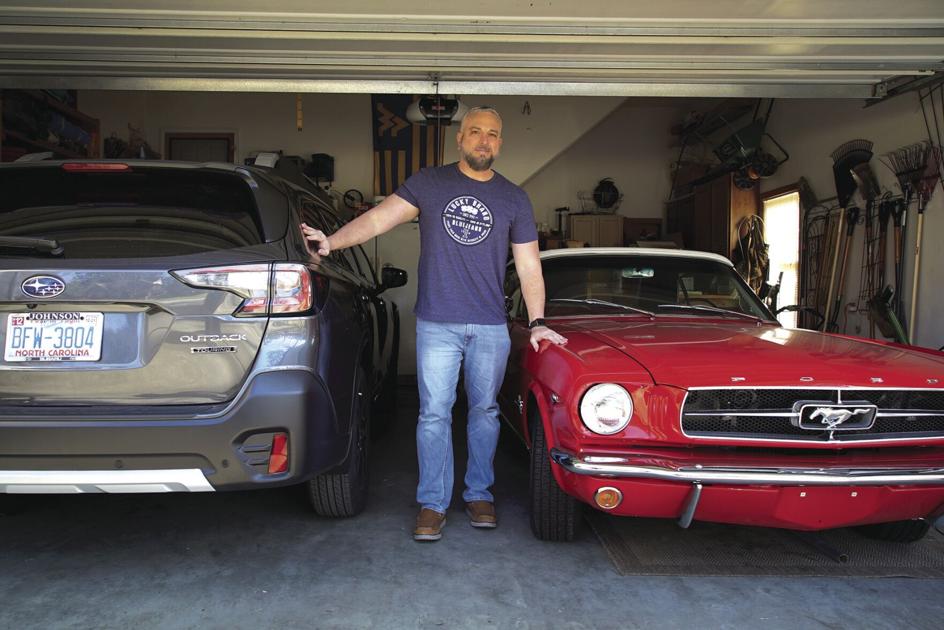
DETROIT — The world’s major automakers have made something abundantly clear: They believe electric vehicles will dominate their industry in the years ahead.
Yet for that to happen, they’ll need to sell the idea to people like Steve Bock.
When Bock recently replaced his family’s 2013 Honda Pilot SUV, he considered — and then dismissed — the idea of buying an electric vehicle. An EV with enough room to carry his two dogs would cost too much, he decided. And he’d worry about driving long distances with too few charging stations.
“I would consider it if the prices would come down,” Bock said, though leaving open the possibility of buying an electric vehicle next time.
Instead, Bock, of suburban Raleigh, North Carolina, settled on a Subaru Outback. Like nearly every other vehicle sold in the United States, it runs on gasoline.
Opinion polls show that a substantial majority of Americans are aligned with Bock. An EV might be on their shopping list if it cost less, if more charging stations existed and if a wider variety of models were available. In other words, the time isn’t right.
It adds up to a significant risk for the largest automakers. With governments across the globe intensifying efforts to reverse climate change, the automakers are staking their futures on the notion that consumers will soon be ready to buy vehicles that run not on the internal combustion engines that have powered cars and trucks for more than a century but on electricity stored in a battery pack.
General Motors, Ford and Volkswagen plan to spend a combined $77 billion developing global electric vehicles over the next five years, with models from pickup trucks to small SUVs. GM has gone so far as to announce a goal of ending gasoline- and diesel-fueled passenger vehicles entirely by 2035 – and to become carbon-neutral by 2040.
For the automakers, the risk is as hazardous as it is simple: What if American consumers reject electric vehicles for many years to come?
Companies would have no choice but to discount them and hope, in the meantime, that their profits from gas vehicles would still cover their costs — at least until large proportions of buyers gravitated toward EVs.
If they don’t, the financial blow could be heavy. For now, EVs make up less than 2% of US new-vehicle sales and about 3% worldwide.
“It’s still a sector that doesn’t have a mass appeal to the entire population,” said Jeff Schuster, president of global vehicle forecasting for LMC Automotive, a consulting firm. “It could be a financial drain if consumers do not buy at the same level.”
Yet in contrast to the United States, sales of EVs have taken off in Europe and China, largely because of much more far-reaching pollution regulations and government incentives. Those tighter environmental regulations are forcing the industry to sell more electric vehicles.
In Europe, carmakers unveiled a slew of new electric models ahead of lower EU limits on average emissions of carbon dioxide, the primary greenhouse gas blamed for climate change, that took full effect at the start of this year. Government-backed incentives can cut the cost to near that of an internal combustion vehicle.
The result: Nearly 730,000 battery vehicles were sold in Europe in 2020 — more than 300,000 of them in the final three months of the year. The market share of electric vehicles — battery-only and plug-in hybrids — jumped from 3% to 10.5%. By December, their share had reached nearly one in four.
Among the new owners is Kerstin Griese of Essen, Germany, who bought a battery-powered Peugeot 208 after having driven electric cars in the motor pool at work. Griese found that they supplied the acceleration necessary to merge safely onto the highway for her (25 mile commute to the public works department in the town of Solingen.
“I said to myself, when they cost around $36,263 and have more than 300 kilometers of range, and when the incentives are set high, then I’m there. And that happened last year.”
After a government subsidy of 6,000 euros and the carmaker’s 3,000 euro share, her new car will cost around $29,000. The car can use fast-charging stations along highways, where she can recharge in a half hour when she takes longer trips, such as shopping excursions to the neighboring Netherlands, about 40 miles away.
“I found that very appealing,” she said.
"electric" - Google News
March 16, 2021 at 06:00PM
https://ift.tt/3rW8VV2
Will buyers embrace electric vehicles? | Business | avpress.com - Antelope Valley Press
"electric" - Google News
https://ift.tt/2yk35WT
https://ift.tt/2YsSbsy
Bagikan Berita Ini














0 Response to "Will buyers embrace electric vehicles? | Business | avpress.com - Antelope Valley Press"
Post a Comment